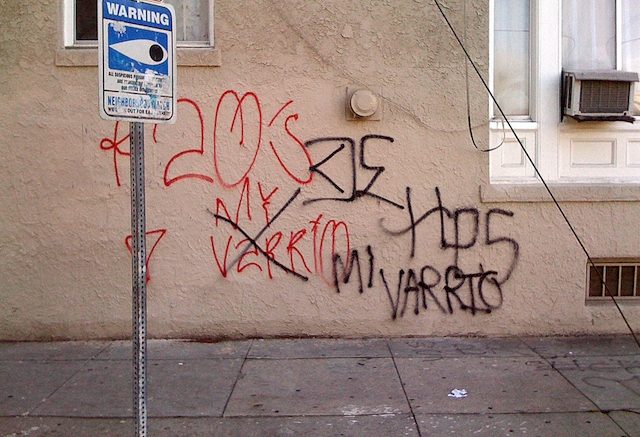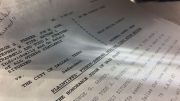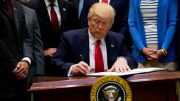The ACLU has brought forward a lawsuit (PDF) against the City of Los Angeles and the LAPD for their gang injunctions, which they say violates Constitutional due process rights.
“Part of the problem is the way the cities go about getting injunctions,” Peter Bibring, a senior staff attorney at the ACLU, told LAist. When seeking an injunction, officials name a gang (instead of individuals), which are not legal entities. “Without anybody meaningfully contesting” these requests, says Birbring, all 46 injunctions currently enforced by the LAPD have been granted on default judgments.
“LAPD officers and deputy city attorneys… make a determination behind closed doors and unilaterally decide who should be subjected to the parole-like conditions of the injunctions, based on vague guidelines that supposedly indicate gang membership, such as whether a person wears certain brands of clothing, hangs out with other suspected gang members, or spends time in suspected gang areas,” according to the ACLU in a statement .
Under the gang injunctions, over 9,000 Los Angeles residents in a total area of about 75 square miles are subject to restrictions where they may not be allowed to socialize with people suspected to be gang members (including fellow family members), wear certain colors suspected to be gang affiliated, or even carry a pager or highlighters (which could be used for tagging).
“It’s pretty cruel. I don’t see how the LAPD can enforce the law saying that you can’t be with your family,” Peter Arellano, a 21-year-old Echo Park resident told the L.A. Times . “I think it’s like inhumane. It’s like when a dog has puppies, and you take the puppies away from the dog. It’s just sad.”
Arellano and Jose Reza, a former Ramona Gardens resident, are the two plaintiffs named in the lawsuit, which was filed by the ACLU on behalf of the Youth Justice Coalition.
In 2007, the city established a process by which individuals could apply to be removed from an injunction. However, such a process is “painstakingly slow,” according to the complaint, and can take up to a year for someone’s name to be removed. Less than 50 people have had their name removed from an injunction since the this process was put in place.
L.A. was one of the first cities to use gang injunctions as a tactic to curb crime, beginning in 1987 with an injunction against the Playboy Gangster Crips. “The city of L.A. certainly has more injunctions than any jurisdiction in the country,” said Birbring. “They were pioneered here and most used here.”
LAist reached out to both the LAPD and the Los Angeles City Attorney’s Office but did not receive a comment. A spokesperson for the LAPD said the department does not comment on pending litigation.
Source: laist.com




